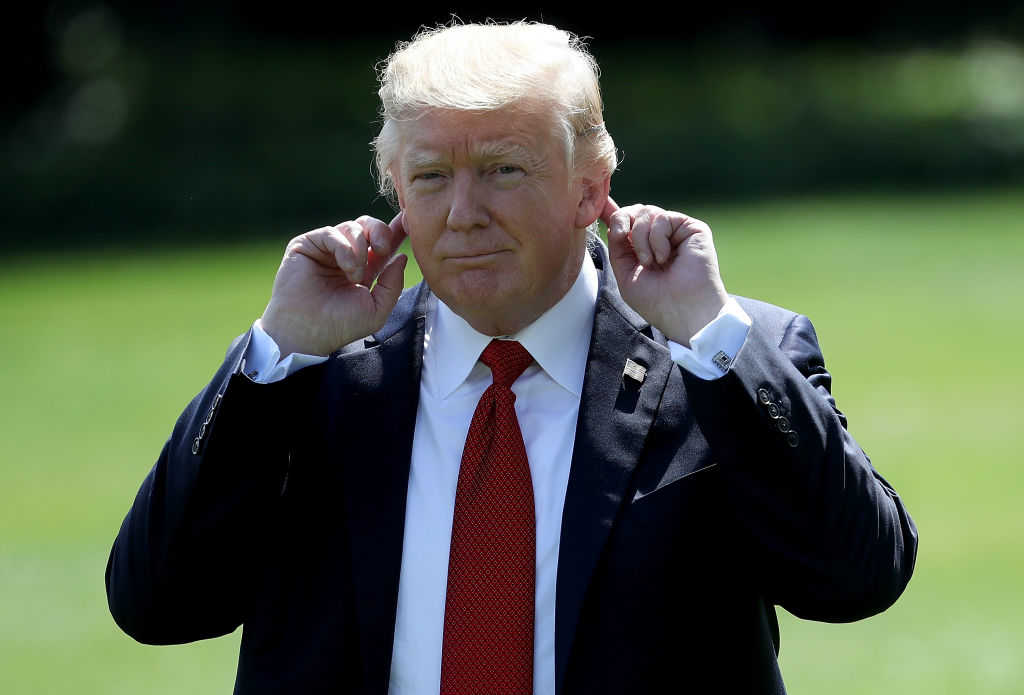In the midst of ongoing hurricane coverage, some might have missed a tweet from President Donald Trump on Friday — a notable message in support of Texas churches that are seeking funds from the Federal Emergency Management Agency (FEMA).
“Churches in Texas should be entitled to reimbursement from FEMA Relief Funds for helping victims of Hurricane Harvey (just like others),” Trump tweeted.
While the message might seem pretty random, there’s some important context to consider. As Faithwire previously reported, three small Texas churches are suing the U.S. government over their claim that FEMA is violating the law by refusing to allow religious groups to apply for disaster relief grants in the wake of Hurricane Harvey.
Churches in Texas should be entitled to reimbursement from FEMA Relief Funds for helping victims of Hurricane Harvey (just like others).
— Donald J. Trump (@realDonaldTrump) September 9, 2017
Becket, a religious liberty law firm, filed a federal lawsuit in Houston last week, alleging that current FEMA policy violates a recent Supreme Court ruling in the Trinity Lutheran Church of Columbia, Inc. v. Comer case, which centered around a Missouri government program that provides grants for tire-based resurfacing to help make playgrounds safer for kids.
The 7-2 ruling found that Missouri went too far in refusing to allow a Lutheran church to receive state funds for playground resurfacing. Now, Becket and the churches it represents — Harvest Family Church, Hi-Way Tabernacle, and Rockport First Assembly of God — are pointing to that case to argue that the government is wrong not to offer up equal benefits to religious groups.
“While many private nonprofit organizations, such as museums and zoos, qualify for FEMA’s relief programs to help make basic structural repairs and begin rebuilding, churches, synagogues, and other houses of worship are denied access to grants,” reads a press release from Becket. “FEMA’s policy violates the Constitution, as the Supreme Court recently ruled 7-2 in Trinity Lutheran protecting the right of religious organizations to participate in generally available programs on equal footing with secular organizations.”
Becket’s central point is that churches and religious groups shouldn’t be precluded from receiving aid simply because their buildings are used primarily for religious purposes, especially when there’s so much need after such a destructive event; Trump’s tweet seems to indicate that the president agrees with that assessment.
According to Reuters, FEMA bans federal relief if at least half of a building is used for religious purposes — a policy that was reportedly adhered to after both Hurricanes Katrina and Sandy.
“After the costliest and most devastating natural disaster in U.S. history, the government should come to the aid of all, not leave important parts of the community underwater,” Diana Verm, counsel at Becket, said in a statement. “Hurricane Harvey didn’t cherry-pick its victims; FEMA shouldn’t cherry-pick who it helps.”
One of the central points raised by Becket is that churches and religious groups are often on the front lines of helping communities when disasters hit, yet are not able to receive the same support that secular institutions can successfully apply for.
“Houses of worship are playing a vital role in helping Texans recover from this horrible storm,” Verm said. “It’s time for FEMA to start helping the helpers, not continue a policy of irrational discrimination against churches.”
The text of the complaint claims that “hundreds of churches, synagogues, and other houses of worship will be denied equal access to FEMA relief” if the agency behaves the way it did during “Superstorm Sandy and Hurricane Katrina.”



